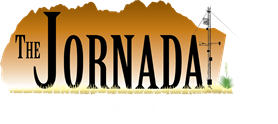| Title | Ensuring coordination and collaboration across climate science entities: toward effective stakeholder engagement for science-informed decisions |
| Publication Type | Conference Paper |
| Year of Publication | 2016 |
| Authors | Elias EH, Steele C, Rango A., Reyes J.T., Langston M, Johnson K, Rice J |
| Conference Name | American Geophysical Union |
| Date Published | 12/2016 |
| Publisher | American Geophysical Union |
| Conference Location | San Francisco, CA |
| ARIS Log Number | 336576 |
| Abstract |
As one of the newest federal programs to emerge in response to climate change, the U.S. Department of Agriculture (USDA) Climate Hubs were established to assist farmers, ranchers and forest landowners in their adaptation and mitigation efforts under a changing climate. The Hubs’ mission is to deliver science-based information and tools to agricultural and natural resource land managers, to enable climate-informed decision-making. By facilitating and transferring tools and knowledge, the Hubs also provide value to cooperative extension, land grant institutions, and USDA itself, especially in leveraging existing resource capacity. Various federal agencies (NOAA, USGS, USFWS) have also developed climate change coordination networks: RISAs, CSCs, and LCCs. These regionally-based federal networks can best operate in collaboration with one another. At their programmatic level, however, there are fundamental discrepancies in mission, stakeholder definition and geographic region. In this presentation, we seek to compare and contrast these divergent characteristics by identifying ‘hot spots’ and ‘hot moments’ where definitions, programs, or priorities may intersect due to place-based or event-based issues. The Southwest (SW) region of the United States, which presently operates under warm and dry conditions, is projected to become warmer and drier in the future. On-going drought conditions have presented an opportunity to maintain and build professional networks among these federal climate change coordination networks, as well as within USDA, to better understand impacts and respond to stakeholder needs. Projects in the Rio Grande River Valley and with Tribal nations highlight successful collaboration based on geography and common stakeholders, respectively. Aridity and water scarcity characterize the SW region and provide an overarching theme to better support adaptation and mitigation, as well as create opportunities for collaborative success.
|


